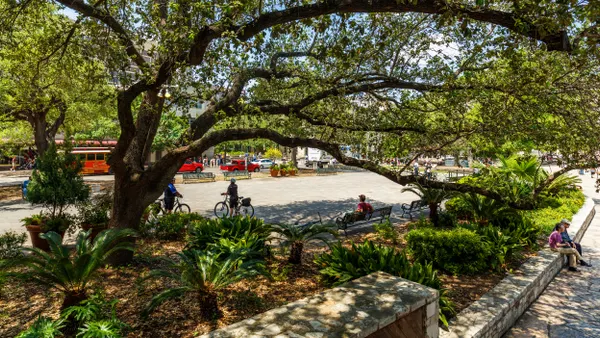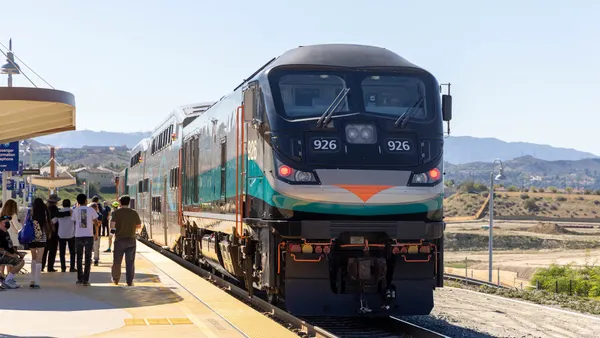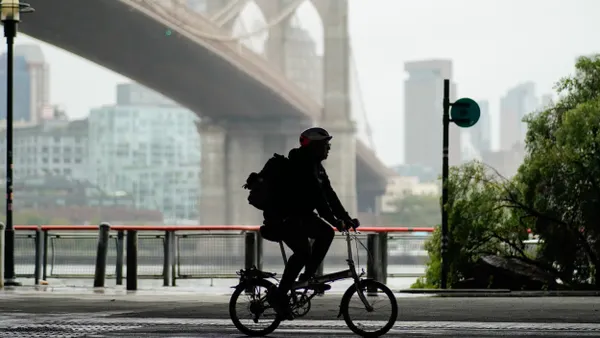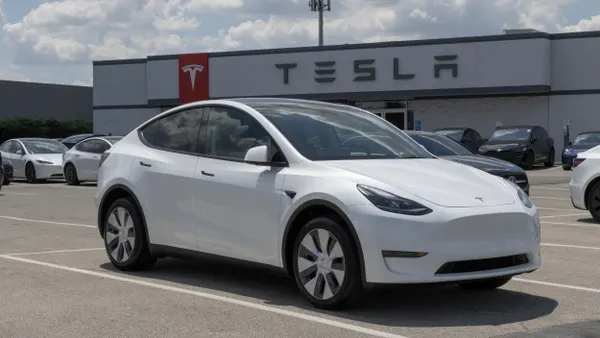Dive Brief:
- DC Sustainable Transportation (DCST), a transportation coalition, has partnered with dockless bike-share companies to release a joint statement of principles for dockless bike-share in the city, according to Greater Greater Washington.
- The pact acknowledges that most customers properly park bikes, but some leave bikes in inappropriate places. The partnership has put forth guidelines for actions that bike-share operators and DC's business improvement districts can take to monitor bike placement and encourage proper customer parking practices.
- The principles also cover areas unrelated to parking bikes, such as setting safety standards and releasing different types of dockless bike-share data to the DC Department of Transportation and to the public.
Dive Insight:
Bike-share companies report actively working with municipal governments to find a program of best fit for each city, as well as to keep programs moving smoothly once they launch. Representatives from most of the dockless service providers in DC also told Smart Cities Dive that they proactively engage customers with educational campaigns to prevent and reduce dockless bike clutter. The new partnership with DCST presents opportunities for further engagement with a different set of stakeholders.
Washington, DC was the second U.S. city, after Seattle, to allow dockless bike-share within its borders when the service providers launched domestically last year. DC's six-month pilot program comes to an end next month and is under evaluation by the city for possible expansion. Dockless service providers say they've been working with the city the entire time to meet needs and improve as necessary.
"A lot of the dockless vendors are getting together [with the city] and sharing what we think went well and what can be improved upon. It's in a good state right now where I think everyone's being honest and reflective on how well we did and what we could do to improve," Kyle Rowe, head of government partnerships for dockless company Spin, told Smart Cities Dive.
Working with DCST to devise the set of principles demonstrates dockless bike-share businesses' willingness to work with a variety of different groups affected by their service besides just local governments, and their commitment to operating a business that's widely viewed as successful and beneficial. Establishing and adhering to this type of pact is a visible way to continue engagement.
Forging partnerships with various stakeholders and setting up operating guidelines early in a program tends to produce better long-term results than waiting until later when issues might arise. The DC pact could be a collaboration model for other cities launching dockless bike-share programs, to address citizen and stakeholder concerns up front and clarify each group's role in sustaining a successful program.











